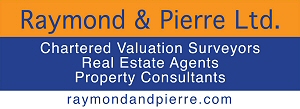| Property Matters – The EFCL Query
Part 3
Published Tuesday July 19th, 2011
Last Thursday the EFCL published a full-page response to the first
article in this series – see
here.
Although it was comforting to see the clear statements on EFCL’s
‘speak out’ component, Whistle-Blowing policy and procedure and Fraud
Policy, the central concerns are greater, if anything.
I deliberately used the word response, since no reasonable person
could consider that advertisement to be a reply to my emailed queries.
If EFCL were really replying to my query, it would have been no
problem to provide a copy of the documents and answer the simple
questions.
EFCL’s preferred course of action is to spend more taxpayers’ money
on expensive artwork and advertising, so the further question is
‘Why?’.
Considering that all I was doing was questioning the existence and
origin of an important policy of this State-owned company, it is
perturbing to be having this level of challenge in getting a simple
clarification.
As I wrote in this space last week – ‘So, what is the secret?’
What could be the delay or difficulty in providing a copy of the
EFCL’s Confidentiality Policy, as requested?
In the first article in this series, I posted the documents which had
been passed to me - see here.
The simple question is whether these are the genuine documents. There
was no attempt by EFCL to even answer that important query.
It is important because the EFCL advertisement told readers that
“…Employees were not asked to sign under threat of dismissal…”
The first sentence of the preamble of the Staff Confidentiality
Agreement is -
“All new and existing employees will be
given a copy of this confidentiality policy and will be required
to sign a confidentiality agreement at the time of hiring or
during their service to the company.”
The emphasis is mine - yes, it reads ‘required to sign’.
But there is more, because the EFCL advertisement also stated that –
“Staff who asked for time to get external advice, were allowed to.”
However, clause 1 d. of the Confidentiality Agreement states –
“The existence of this agreement and its
terms are confidential and none of the parties to this agreement may
disclose anything about this agreement or its subject matter or
implementation to any person except if required by law to do so.”
It is clear that the EFCL advertisement and the documents sent to me
cannot both be true.
So, which is true?
Why did EFCL not send or publish the documents?
Quite frankly, it appears that EFCL is making a great effort to
conceal or obscure its true policy on confidentiality, for whatever
reason.
If this is the kind of effort being put into obscuring the elementary
policy of this State-owned company, I can scarcely imagine their
reaction to queries on particular projects, Directors’ benefits or
tender procedure.
The behaviour of the State and its agents must be exemplary. Public
Officials have an obligation, in my view, to behave in a fashion which
fosters trust and good order.
It is all starting to resemble a tangled web, sad to say.
Again, I hope that my doubts are misplaced.
Afra Raymond is President of the Joint Consultative Council for the
Construction Industry (JCC) and Managing Director of Raymond & Pierre
Limited.
www.raymondandpierre.com. |

